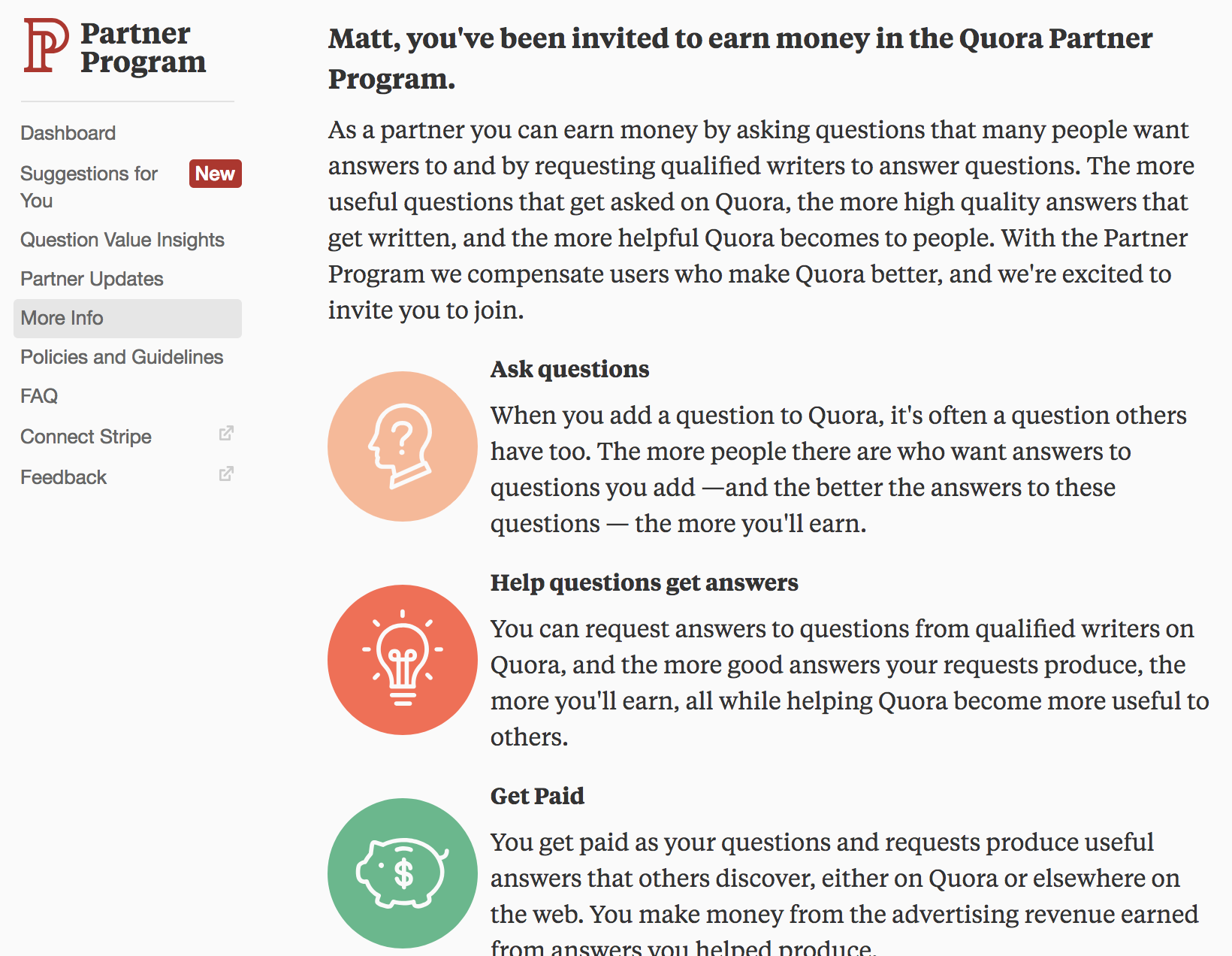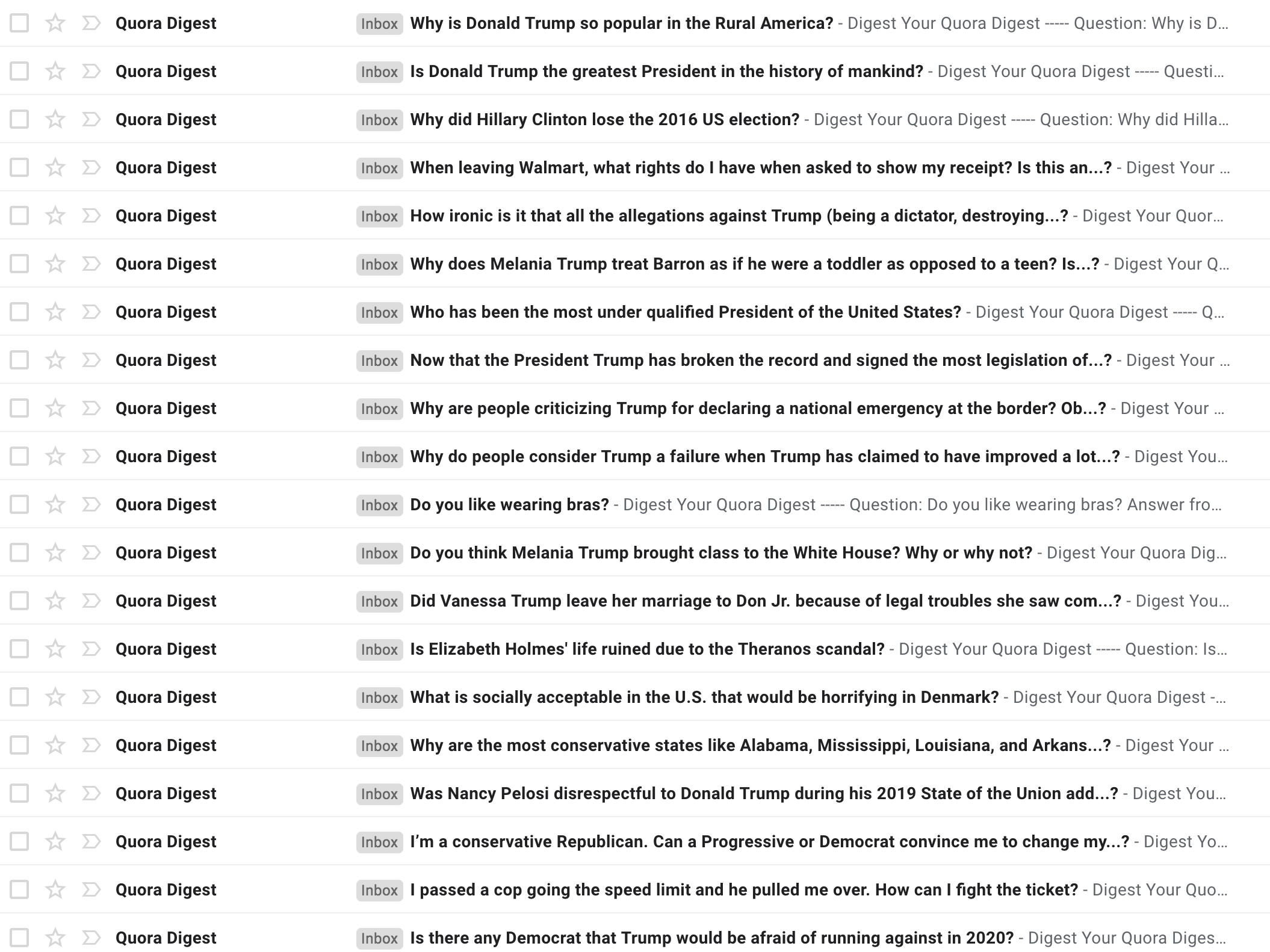Optimizing for outrage
I'm dismayed to see Twitter and Quora optimizing for outrage lately in their quests to keep users engaged and using their services at any cost.
Twitter has made two recent changes that prize outrage over user happiness.

The first is inserting recent trending news into my list of notifications. For 12 years, my notifications tab has been filled with nothing but a feed of interactions on my tweets. It's been 100% personal and customized to just me for all that time. A couple months ago, they started adding in news alerts. At first, they weren't bad, it was a lot of CNN breaking news level things like "A major congressional hearing is now streaming" and it was kinda useful, but after a couple weeks it quickly devolved into "Trump did something" with a much lower bar. I've only recently unblocked Trump (tired of seeing friends RT his ugly messages into my timeline) and I have zero interest in hearing about the garbage things he says each day. If I wanted to know, I'd follow him. I'm sure there are great engagement numbers for these messages, but it's low information, high outrage fodder to me.
At the very least, give me some control over them, or stick to the expected behavior for the last 12 years.

The second change to Twitter is finally allowing mobile users to sort their timeline by date, like it was in the early days. Last year I quit Twitter and deleted all my tweets, and I stayed away for two months when it became too much of a timesuck. When I returned, one way to keep myself sane was switching to a latest-tweets-first timeline.
The "in case you missed it" feature that is the default sort had grown to constantly stoke outrage. It would show me the most RTed and liked tweets at the top, often up to 24 hours after they were posted. In our current political climate that meant for 24hrs after any major event, I would see tons of tweets stuffed into the top of my timeline, even hours after things were debunked or stories shifted. News didn't naturally decay as the "in case you missed it" sorting made sure I saw stuff over and over again.
Moving to latest tweets means news comes and goes. Stuff bubbles up for a couple hours and then it's gone. But the outrageous thing about this feature is Twitter mobile pushes me back into the Top Tweets/in case you missed it sorting once every few weeks, and I have to immediately switch it back to latest first.
I have no doubt that showing just the top outrageous tweets leads to more engagement. If you're constantly hitting people with outlandish news stories they'll open the app more often and interact and post about what they think so the cycle continues. Latest stuff means things decay and not a lot dominates your timeline for more than a couple hours.
That Twitter feels compelled to force me into the outrage cycle baffles me. I dislike any time a service makes a change to my preferences for me.

Finally, Quora recently started pitching me on their revenue program. In order to grow their service, they're now paying people based on questions and answers, and they give me a weekly notification and board of their top earners.

In the abstract, it's cool they're paying writers on their platform for their contributions, but when you build in incentives, you create a system of rewards and it's hard to make sure that system encourages the best kinds of contributions. Ultimately you want to greatly improve your experience as a result of giving people money for their contributions.
Naturally, people like to game these kinds of systems, especially when there's a financial reward. Going off my normally great and interesting Quora top questions emails, they've taken a dark turn in the past few months.

Is it because I click on questions that sound bananas according to Quora's algorithms so they show me more outrageous things each week? Or is it because people are getting paid to make highly engaging questions that set people off? I can't tell, but it feels like the service is measurably worse, since all Quora wants to show me are clueless questions from Trump supporters. If you look at the subjects above, it's almost a form of sealioning as people are "just asking questions" but my weekly digest email feels more like a pit of vipers than ten interesting questions I used to like reading.
Subscribe to our newsletter.
Be the first to know - subscribe today





